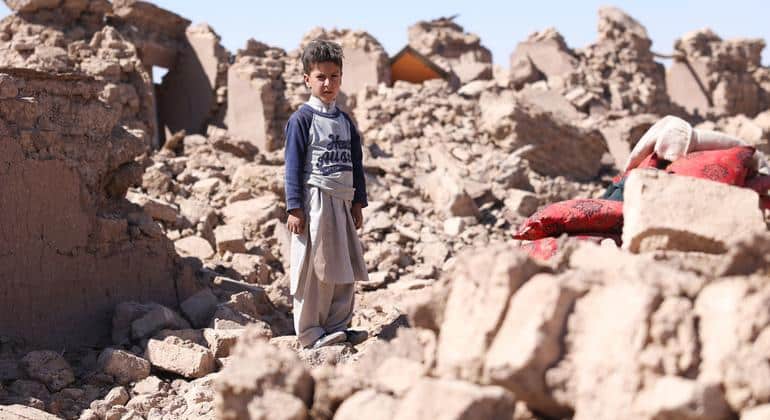Here’s the translation to American English:
—
The UN Secretary-General, António Guterres, has expressed his strong commitment to the victims of the devastating earthquake that has struck eastern Afghanistan, where at least 800 fatalities have been reported. In an emotional message of solidarity, Guterres extended his condolences to the families of the deceased and expressed his hope for a swift recovery for the injured.
UN agencies on the ground highlighted the severity of the damage in four provinces, including Nangarhar and Kunar, where relief efforts have already begun. The quake, which occurred around midnight, left many people trapped under the rubble, intensifying the population’s fear.
It has been established that the epicenter of the tremor was located at a depth of only eight kilometers, causing tremors felt as far away as Kabul and Islamabad, the capital of Pakistan. Humanitarian assistance is being coordinated by organizations such as the United Nations Assistance Mission in Afghanistan (UNAMA) and the Office for the Coordination of Humanitarian Affairs (OCHA).
The World Health Organization has sent medical teams to various hospitals to address urgent medical care needs, providing medicines and other essential life-saving materials. Meanwhile, the United Nations Children’s Fund (UNICEF) has raised alarms about the risks facing thousands of children following the disaster. Its teams are working in the affected areas conducting assessments and providing emergency medical care. Additionally, they are distributing essential items like medicines, warm clothing, and cooking utensils to families who have lost everything.
The UN has maintained a continuous presence in Afghanistan since 1949, and currently, more than 20 agencies are collaborating to address various challenges, including this catastrophe. The refugee agency, UNHCR, has reported fears of over 2,000 injuries just in Kunar province, calling on the international community to support relief efforts.
The conditions under which assistance is being provided are complicated, as some remote communities are only accessible on foot. Local authorities have intensified efforts, using heavy machinery to clear roadblocks and facilitating helicopter transport for the injured to the main hospitals in Jalalabad and Asadabad.
This recent earthquake adds to the already tragic situation faced by the country, marking one of the worst moments in Afghanistan’s recent history, less than two years after earthquakes that caused thousands of deaths and injuries in the Herat region. Humanitarian aid is crucial in these critical moments, and an urgent call is being made for the international community to act swiftly.
—
via: MiMub in Spanish











